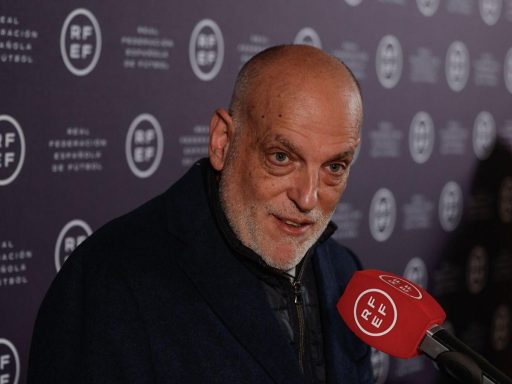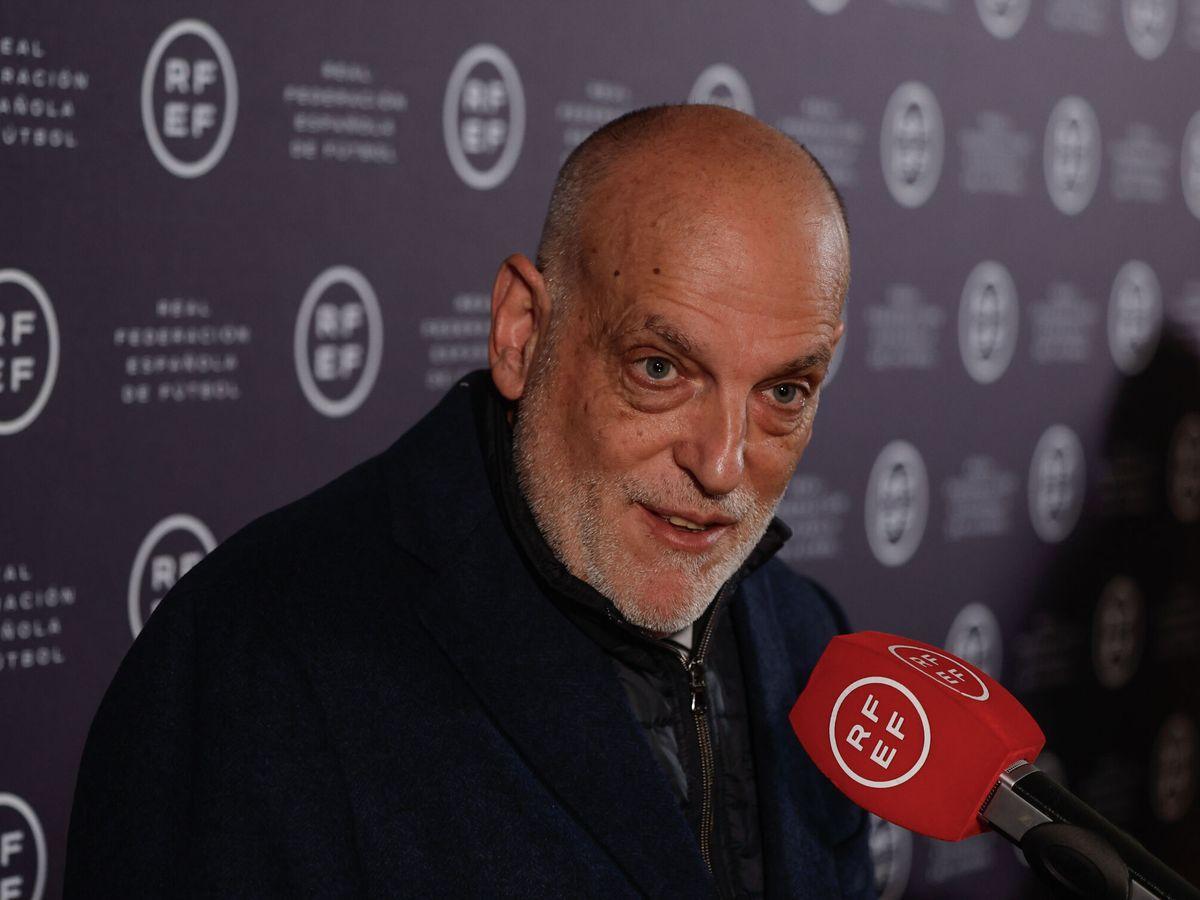Instant Access
No Waiting, Start Streaming Now
24/7 Support
Always Here to Help
Multi-Device
Watch on Any Screen
8K Quality
Crystal Clear Streaming


Instant Access
No Waiting, Start Streaming Now
24/7 Support
Always Here to Help
Multi-Device
Watch on Any Screen
8K Quality
Crystal Clear Streaming
In the high-stakes realm of football,emotions frequently enough run as high as the scorelines,and few clubs evoke such fervent passion as Real Madrid. Recently, the spotlight has turned to La Liga President Javier Tebas, who has stirred the pot with his comments asking the historic club to cease its vocal lamentations regarding officiating decisions. His remarks, charged with both frustration and a touch of irony, highlight an ongoing tension between the league’s governing body and one of its most illustrious teams. As debates over referee performance take center stage, this article delves into Tebas’s perspective, examining the broader implications of his words on the rich tapestry of Spanish football and the ages-old rivalry that ignites debate among fans and pundits alike. Join us as we unravel the layers of this contentious dialog, where passion, power, and pride intersect on and off the pitch.
In an increasingly heated war of words within Spanish football, La Liga president Javier Tebas has turned the spotlight on Real Madrid, accusing the club of overplaying their dissatisfaction with officiating decisions. With tensions escalating,Tebas’s remarks suggest he believes the reigning European champions need to adopt a more composed stance instead of continually questioning refereeing calls on and off the pitch. His comments come amidst an ongoing debate regarding the perceived fairness of decision-making in La Liga,a topic that ofen flares up after high-stakes matches.
While Tebas avoided calling out specific incidents,his broad statement implies that Real Madrid’s leadership has been overly vocal in contesting referee decisions—particularly in cases where results didn’t go their way. The growing gulf between La Liga’s governing body and its marquee club adds another layer of complexity to the ongoing power dynamics in Spanish football.
Real Madrid’s persistent grievances regarding refereeing decisions have drawn notable attention. While some fans and analysts align with their claims of inconsistency, the club’s public criticism may be harming the broader football ecosystem. Officials facing constant scrutiny can be negatively impacted, as pressure to avoid mistakes grows, potentially influencing match outcomes in unintended ways. Moreover, this ongoing narrative risks fostering a polarized habitat that places referees under undue psychological stress—a delicate balance for a job already marred by controversy.
For the league as a whole,such behaviour has wider ramifications. Critics argue that madrid’s vocal stance could undermine the credibility of La liga’s officiating system, leading to increased distrust from fans and smaller clubs alike.Some have suggested alternative approaches for addressing refereeing concerns:
A middle ground must be sought to ensure fair play while preserving the authority of match officials,given that consistent criticism,if unmanaged,risks destabilizing the league’s integrity over time.
To foster a healthier relationship with match officials, Real Madrid might consider adopting a more constructive and proactive approach in their engagements. Rather than highlighting errors post-match, the club could prioritize open, respectful dialogue channels with the refereeing bodies.This could include initiating private feedback sessions rather than releasing public statements, which often escalate tensions.Furthermore, engaging in collaborative forums with La Liga, other clubs, and associated refereeing authorities could demonstrate a willingness to unite for long-term improvements in officiating standards.
Another recommendation is embracing educational workshops and outreach efforts focused on refereeing dynamics. By organizing internal seminars for players and staff about how decisions are made on the field, the club might reduce on-pitch frustrations.additionally, advocating for transparency through technological enhancements, such as improved VAR processes, could align Real Madrid’s objectives with progressive changes in football. These efforts, coupled with public displays of support for referees when appropriate, can help build mutual respect and professionalism.
Football is much more than just goals and rivalries; it thrives on the fundamental principles of fair play and respect, which form the backbone of any competitive sport. When teams, players, or officials lose sight of these values, the beauty of the game risks being overshadowed by disputes and controversies. Instead of fostering division,healthy competition should encourage sportsmanship and mutual acknowledgment of the challenges inherent in elite-level football.Constructive dialogue and transparent decision-making processes can bridge gaps,ensuring a sense of unity,even amidst intense rivalries.
To emphasize the value of fair treatment, football’s governing bodies can draw from data to inspire trust. Below is an example of how initiatives may improve accountability:
| Initiative | expected Outcome |
|---|---|
| Referee Transparency Reports | Enhanced trust in officiating decisions |
| Player Code of Ethics | Reduced unsportsmanlike behavior |
the tug-of-war between clubs often unveils deeper narratives within the world of football, and Javier Tebas’s comments regarding Real Madrid’s complaints about officiating exemplify this ongoing drama.While some may perceive his words as a challenge, others might view them as a call for perspective in the ever-competitive landscape of La Liga. As football enthusiasts, we are reminded that the game, with all its highs and lows, thrives on passion and rivalry. moving forward, it is essential for all parties to channel their energies toward constructive dialogue and fair play. After all, the true spirit of football lies not just in the victories and defeats, but in the respect and understanding fostered among its most fervent advocates.
34,353
Live TV Channels
162,404
Movies
27,802
Series
284,023
Total Subscriptions
139,854
Users Online
142,887
Total Resellers

